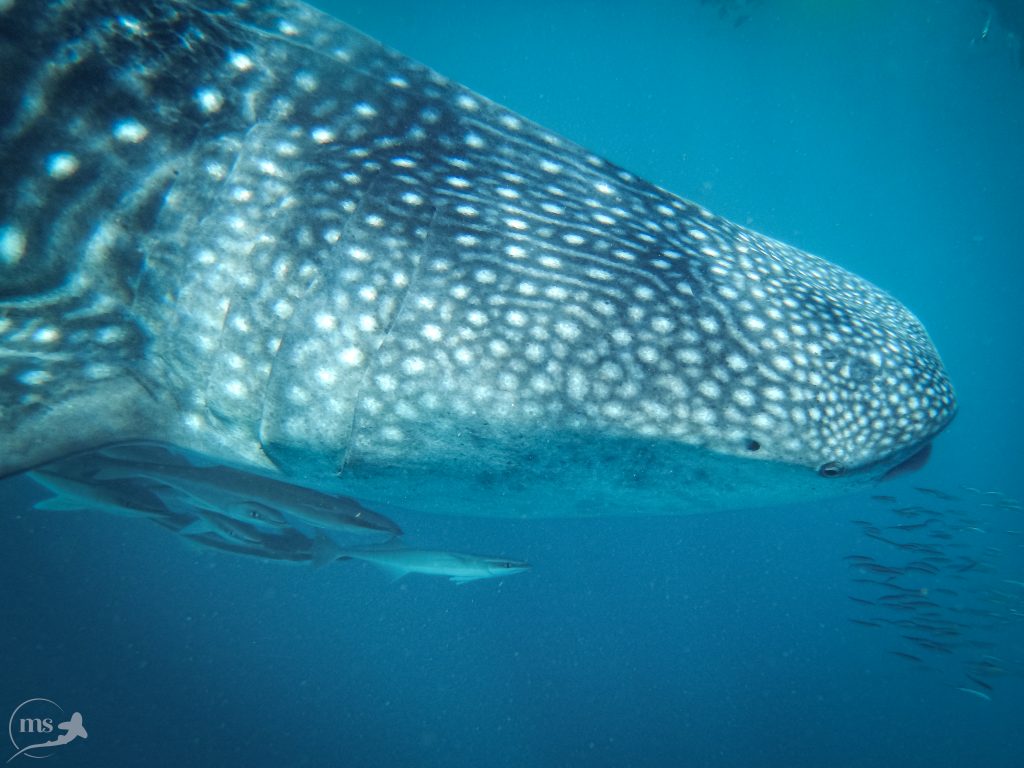
Whale shark (Rhincodon typus), 0% whale and 100% shark, whale sharks are the largest fish in the world, reaching up to 18m (60 ft). Primarily pelagic, they can be found in both coastal and oceanic habitats. They lack proper teeth having only tiny ones and filter pads in their gills. They are filter feeders, one of only three known filter-feeding shark species (along with the basking shark and the megamouth shark). They feed on plankton and other small animals like baitfish and squid. They swallow water either by opening their mouth and swimming forward or by active suction, opening and closing their mouth. The water is then expelled through the gills, which filter the food. A juvenile whale shark is estimated to eat 21 kg (46 pounds) of plankton per day.
Whale sharks are found in tropical areas around the world, including the warm waters of Mexico from the Sea of Cortez to the eastern Mexican coast in the Caribbean. They are generally solitary animals but sometimes gather in large groups to take advantage of good feeding opportunities.
They are gray or gray-blue with a beautiful pattern of white lines and dots. This pattern is unique to each individual, like a fingerprint, and can be used for identification. In La Paz area they gather from November to April to feed in the plankton-rich waters of the Bay. Despite their enormous size, we still don´t know much about these animals, and their growth, longevity, and reproduction are poorly understood. They are classified as Endangered on the IUCN Red List.